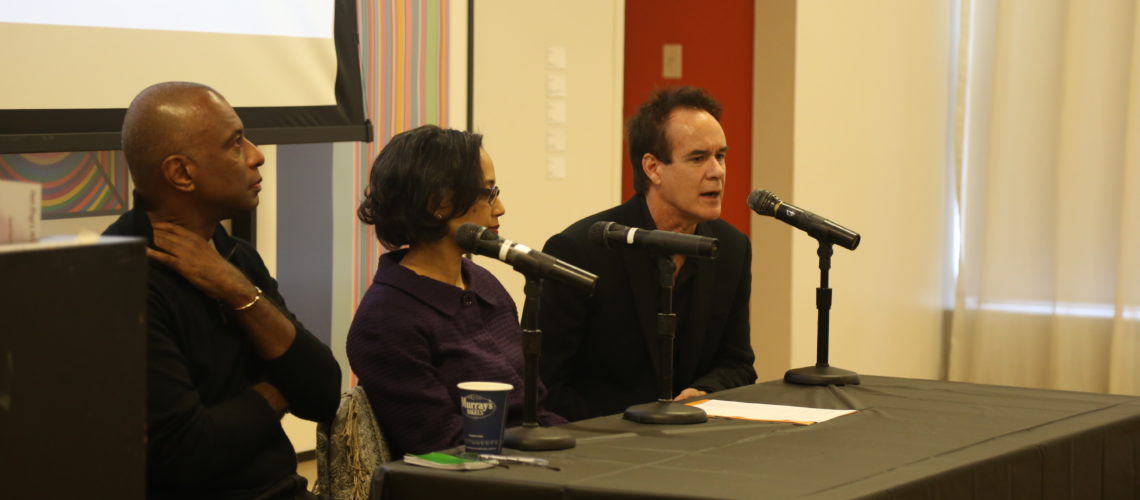
Fathima Sheikh (Class of 2019) shares her thoughts on the conversation between Robert Antoni (Pan-European MFA), author of Blessed is the Fruit, and Caryl Phillips (Yale), author of The Lost Child, at “Jean Rhys’s The Wide Sargasso Sea: A Celebration,” presented by Literary Studies at The New School’s Wollman Hall on October 19, 2016.
. . .
In Session III of the Wide Sargasso Sea celebration, Caryl Phillips and Robert Antoni discussed their shared fascination with Jean Rhys’s life. Rhys (1890 – 1979) was born and raised until the age of sixteen on the island of Dominica in the British West Indies, child of a white Creole mother of Scottish descent and a Welsh father who came to the island as an adult. Jean’s Creole accent remained with her despite the mockery of her English schoolmates and the best efforts of her instructors at theatre school in England.
After establishing the centrality of Rhys’s origins to her writing, Antoni and Phillips turned to their crucial bearing on Wide Sargasso Sea, her most acclaimed novel. Antoni was struck by the precision of Rhys’s language in Wide Sargasso Sea and discussed how rereading the novel enriched his appreciation of its deep craft. Phillips then spoke to the importance of insularity for novel writing, noting, “You have to go to a place you don’t know to give birth to a book. You can’t give birth in front of everyone; you can’t expose yourself to the world like that.” Rounding back to Rhys’s experiences of cultural bias in England, Phillips described Rhys as a “white, colonial, migrant woman” who brilliantly crystallized Britain’s complex relationship with her colonies, and her own traumatic experiences of that conflicted relationship, in the person of her protagonist, Bertha Mason.
Both speakers addressed Rhys’s radical re-visioning of a canonical text—Charlotte Bronte’s Jane Eyre—and agreed that while Rhys’s novel has interested a wide range of critics (such as feminist, modernist and postcolonial), its deep imaginative world wards off any attempts to categorize it simply. Toward the end of the discussion, Antoni underscored this paradox of fiction writing to the assembled audience: “You will never know how to make the world from scratch until you start writing a book.”